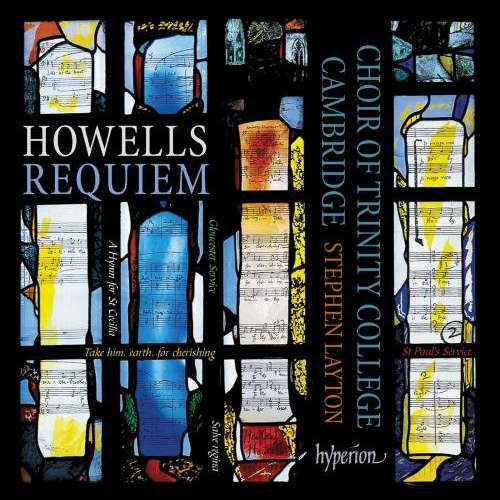- Jacqueline Dark
- Richard Gaddes
- SWR
- Mimis Plessas
- Rafael Frühbeck de Burgos
- Ben Thapa
- Ondřej Vrabec
- Konstantin Igumnov
Hanns Eisler
Austrian composer Hanns Eisler was born in Leipzig on 6 July 1898. His family moved to Vienna in 1901. During World War I he was a front-line soldier in the Austro-Hungarian army and was wounded several times. From 1919 until 1923 he studied with Arnold Schoenberg, and was the first Schoenberg student to write serial music.
After moving to Berlin in 1925 he became involved with the November Group of artists and architects, and was a supporter of the Communist Party of Germany. He taught at the Marxist Workers' School in Berlin, and his music became increasingly politicised and popular in style, using cabaret and jazz influences. He became close to the German playwright and poet Bertolt Brecht, both men turning to Marxism at about the same time, and the two collaborated on many projects, including protest songs such as Solidaritätslied (Solidarity Song), and with Eisler writing music for several Brecht plays, until Brecht died.
Eisler's 1929 song cycle Zeitungsausschnitte predicted a later musical art style later known as 'News items', parodying the layout and title of newspapers and other printed media.
When Eisler and Brecht's work was banned by the Nazis in 1933, Brecht travelled abroad, working in Austria, Czechoslovakia, England, France, Mexico, Russia, Spain and the USA. In 1938 he emigrated to the USA and taught composition at the New School for Social Research in New York City. Whilst in the USA, Eisler wrote music for many films, two of which were nominated for Oscars, plus documentary music and experimental chamber works. In 1940 he began to research the relationship between music and film, funded by the Rockefeller Foundation, and resulting in the book Composing for the Films (1947) with German musicologist Theodor W Adorno. In 1942 Eisler had moved to Los Angeles to join Brecht, who had arrived from Denmark.
Eisler's career in the USA ended abruptly at the beginning of the Cold War, when film studio bosses placed him on the Hollywood blacklist. He was interrogated by the House Committee on Un-American Activities and accused of being 'the Karl Marx of music' and a Soviet agent. One of his accusers was his own sister, Elfriede (Ruth Fischer), a co-founder of the Austrian Communist Party who later became an anti-Communist. In spite of his powerful supporters, who included Leonard Bernstein, Charlie Chaplin, Aaron Copland and Igor Stravinsky, Eisler was deported in 1948.
He returned to Austria and later moved to East Berlin, where he famously composed the German Democratic Republic's national anthem, and began work on an ambitious opera Johannes Faustus, for which he wrote his own libretto, but which fell foul of the 1953 workers' rebellion, pushing Eisler into depression. He never wrote the music for the opera, and never really recovered from the death of his friend Bertolt Brecht. Hanns Eisler died from a heart attack in East Berlin on 6 September 1962, and is buried near Brecht in Berlin's Cemetery of the Dorotheenstadt and Friedrichswerder Parishes.
A selection of articles about Hanns Eisler
CD Spotlight. A Fresh Appraisal - Gerald Fenech listens to music by Hanns Eisler. '... the music is beautiful and expressive and filled with a mixture of moods that reflect the tempestuous times in which it was written.'
Ensemble. Youthful Rebellion - Mike Wheeler is impressed by the National Youth Orchestra of Great Britain
Classical music news. Obituary - Georg Katzer (1935-2019)
CD Spotlight. Alternative Worlds - Jewish cabaret music surprises Gerald Fenech. '... those who decide to take the plunge will be rewarded with riches aplenty.'
Ensemble. Remarkable Performance - Eisler, Gershwin, Mozart, Poulenc, Schumann and Weill from Katie Bray and William Vann, heard by Mike Wheeler
CD Spotlight. Diversely Experienced - Music for bassoon, harpsichord and double bass, impresses Howard Smith. '... an outright "tour de force".'



